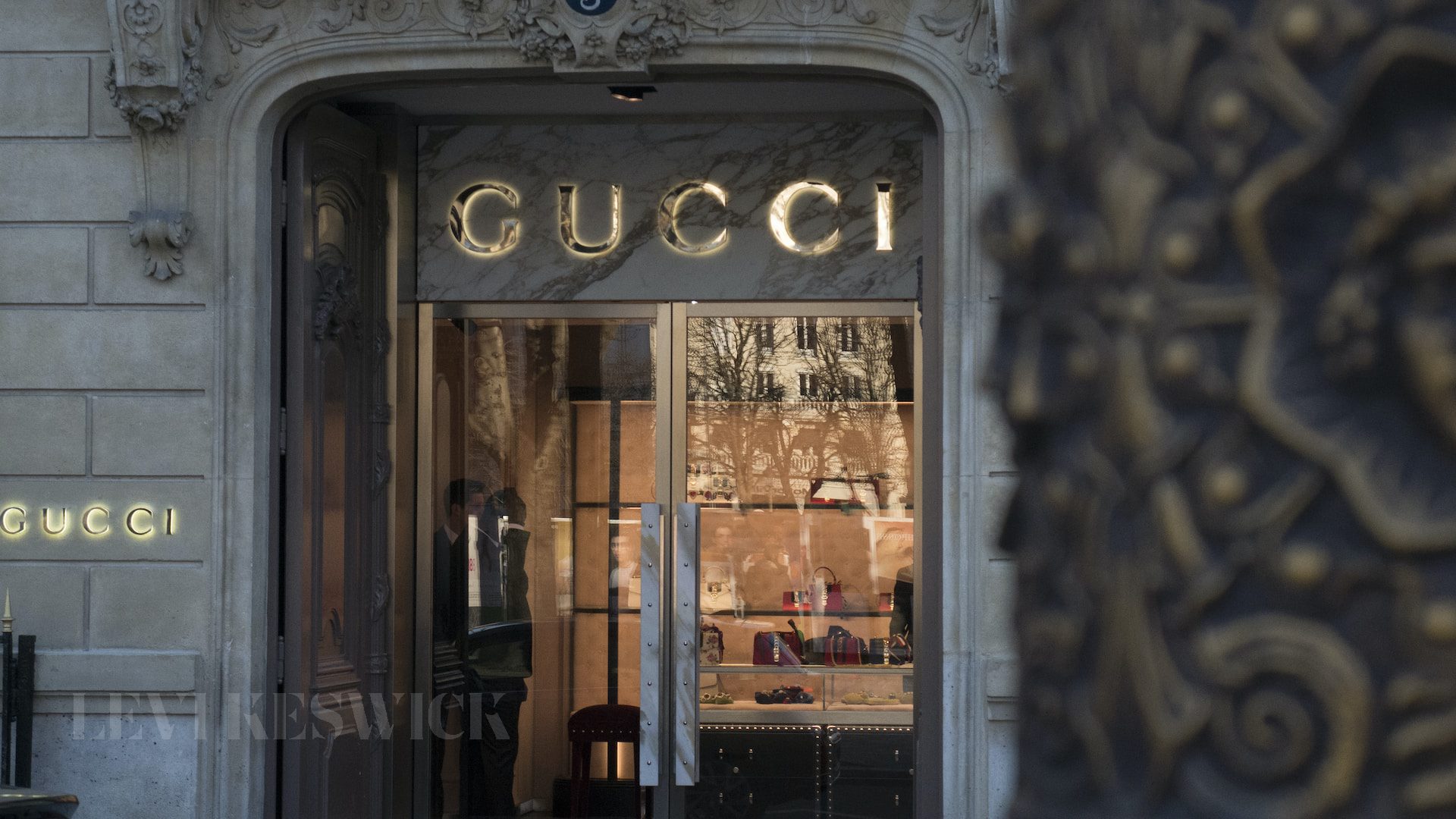Key Takeaways:
- Both Gucci and Louis Vuitton boast a rich heritage, underpinning their modern-day luxury appeal.
- Gucci and Louis Vuitton differ significantly in their brand philosophies and marketing strategies.
- Despite their distinct approaches, both brands continuously adapt to keep pace with the dynamic luxury fashion industry.
The Heritage – Gucci vs. Louis Vuitton
The roots of Gucci and Louis Vuitton lie deep within the luxury luggage business, aligning with the affluence of travel during their inception. Louis Vuitton’s journey began in 1854 with the production of high-quality luggage. Simultaneously, Gucci, established in 1921, carved out its niche with finely-crafted equestrian equipment and luggage.
Today, both brands have diversified their offerings to include clothing, footwear, accessories, and more. Yet, their signature monograms, evoking images of globetrotting luxury, remain central to their identity and allure.
Brand Philosophies and Approaches: Diverse Paths to Luxury
Gucci and Louis Vuitton, though similar in heritage, adopt different philosophies and approaches. Gucci, a luxury powerhouse, has a more adventurous spirit. It leverages seasonal discounts on selected items and collaborations with other brands and artists. This strategy helps Gucci appeal to a broader audience, allowing it to occasionally flirt with a wider demographic while maintaining its core luxury status.
In stark contrast, Louis Vuitton adopts a steadfast, meticulously crafted image of luxury. There are no sales or discounts; the brand would rather destroy less popular items than compromise on its value proposition. This approach reinforces Louis Vuitton’s reputation as an enduring symbol of luxury.
Adapting to the Modern Fashion World
Both brands have to navigate the ebbs and flows of one of the most dynamic industries in the modern market – luxury fashion. They deploy unique strategies to keep their status intact.
Gucci’s collections usually feature a mix of classic designs (65%) and trendy, experimental items (35%). Their marketing campaigns are inclusive and vibrant, emphasizing the brand’s ability to adapt and grow.
Louis Vuitton, on the other hand, emphasizes quality, craftsmanship, and heritage. Their marketing strategy leans towards the preservation of a traditional, sophisticated, and luxurious image. As a result, buying a Louis Vuitton product is akin to acquiring a piece of luxury heritage.
Pricing and Value
The pricing and value of both Gucci and Louis Vuitton products are critical factors for consumers, especially since luxury brands often double as investment opportunities. While the answer to ‘Is Gucci or Louis Vuitton better?’ largely depends on personal preference, both brands have their unique appeal and value propositions that justify their premium pricing.
The Art Supply Scandal
An interesting chapter in both brands’ histories involves the controversial release of luxury art supplies – specifically, limited-edition sets of color pencils. Despite being underwhelming in quality, these pencils sparked a media frenzy and fueled speculations about the brands’ intentions.
While some saw this as evidence of a grand luxury fashion conspiracy, it’s more likely a testament to these brands’ savvy understanding of the influence of social media. The controversy stirred interest, generated buzz, and ultimately led to the creation of limited edition collector’s items.
In Conclusion: The Clash of the Luxury Titans
In the ongoing tussle of ‘Is Gucci or Louis Vuitton better?’, the winner is largely subjective. Each brand brings a unique blend of heritage, philosophy, and market positioning. They cater to different segments of the luxury market, making them simultaneously competitors and partners in the broader narrative of luxury fashion.
Regardless of personal preference, both Gucci and Louis Vuitton exemplify the art of luxury. They continue to dominate the fashion world, captivating audiences with their timeless designs and unwavering commitment to quality. The enduring appeal of these brands testifies to their mastery in crafting a luxury narrative that transcends fleeting trends, reinforcing their status as true icons of the fashion world.








